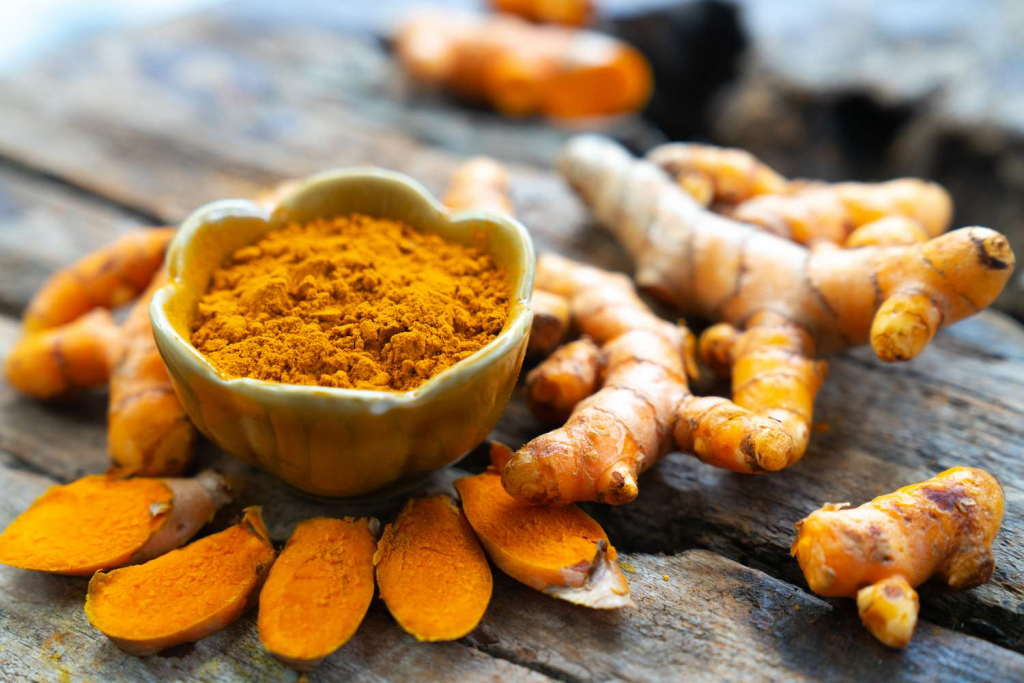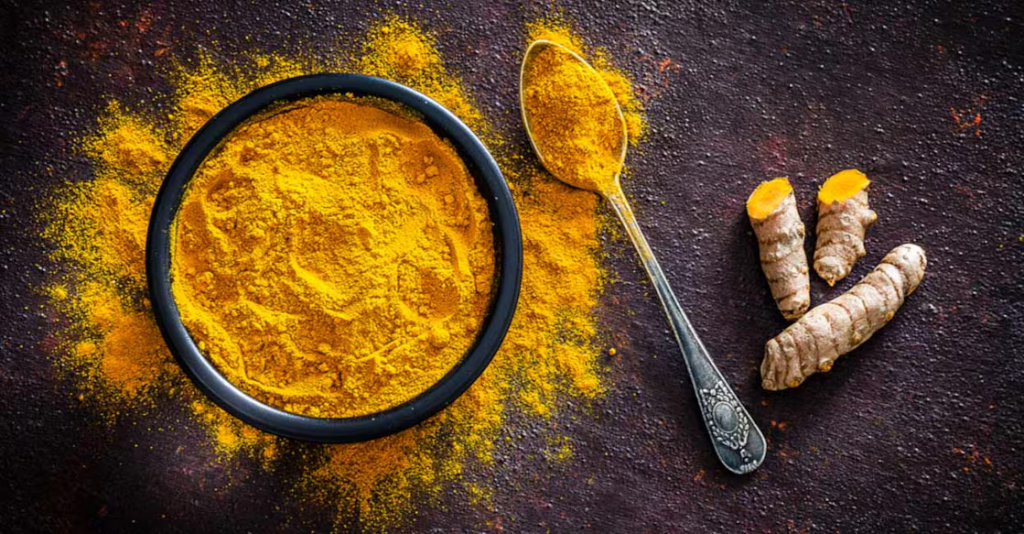Turmeric has been used for over 4,000 years in Ayurvedic and traditional Chinese medicine, yet only in recent decades has modern science begun to uncover its remarkable healing potential. Known for its golden color and warm, earthy flavor, turmeric is now celebrated not just as a kitchen spice but as a natural remedy for inflammation, joint pain, digestive issues, and even cognitive support. In fact, more than 3,000 scientific publications have examined turmeric’s benefits, focusing on its active compound curcumin, which holds powerful antioxidant and anti-inflammatory properties.
The question is: how can you actually use turmeric as medicine in your daily life? And what should you watch out for when it comes to side effects? This article explores the amazing benefits of turmeric, six practical ways to use it, and the potential drawbacks you need to know before adding it to your health routine.

Why Turmeric Is So Powerful
Turmeric’s main bioactive compound, curcumin, has been studied for its role in reducing chronic inflammation, which is linked to many modern diseases, including heart disease, diabetes, and Alzheimer’s.
Key properties of curcumin include:
- Potent antioxidant that neutralizes free radicals
- Anti-inflammatory action comparable to some pharmaceuticals
- Support for joint and muscle health
- Positive impact on gut health and digestion
- Potential neuroprotective effects
What makes turmeric unique is its ability to target multiple pathways in the body, offering broad-spectrum support rather than focusing on a single symptom.

Top Benefits of Turmeric
1. Reduces Inflammation and Joint Pain
Chronic inflammation is at the root of arthritis, muscle soreness, and many autoimmune conditions. Several studies show turmeric supplements can reduce pain and improve mobility in people with osteoarthritis.
2. Boosts Brain Health
Turmeric may increase levels of brain-derived neurotrophic factor (BDNF), a protein that supports the growth of new neurons and protects against cognitive decline.
3. Supports Heart Health
Curcumin improves endothelial function, which is essential for regulating blood pressure and preventing cardiovascular disease.
4. Improves Digestion
Turmeric stimulates bile production, aids in fat digestion, and helps reduce bloating and indigestion.
5. Strengthens Immunity
Thanks to its antioxidant content, turmeric helps the body fight off oxidative stress, reducing the risk of illness.

6. May Help Balance Mood
Some studies suggest turmeric may be effective in supporting people with mild depression by modulating neurotransmitters and reducing inflammation in the brain.
6 Ways to Use Turmeric as Medicine
1. Golden Milk
A soothing drink made with warm milk (dairy or plant-based), turmeric, black pepper, and honey. Black pepper boosts curcumin absorption by up to 2000%.
2. Turmeric Tea
Brew fresh turmeric root or powder with ginger and lemon for a refreshing, anti-inflammatory tea.
3. Cooking with Turmeric
Add turmeric to curries, soups, rice dishes, or roasted vegetables for a daily dose of its benefits.

4. Turmeric Paste
A blend of turmeric powder, black pepper, and coconut oil can be stored in the fridge and added to drinks, smoothies, or food.
5. Topical Application
Mix turmeric with aloe vera or coconut oil to create a natural paste for minor cuts, wounds, or skin irritation.
6. Supplements
Turmeric and curcumin capsules are available for those who want a more concentrated dose. Always check quality and consult with a doctor before starting.
Quick Reference Table
| Method | How to Use | Key Benefits |
|---|---|---|
| Golden Milk | Turmeric + milk + black pepper | Inflammation, sleep support |
| Turmeric Tea | Turmeric + ginger + lemon | Digestive health, immunity boost |
| Cooking | Add to curries, rice, soups | Daily maintenance, heart support |
| Turmeric Paste | Mix with coconut oil + black pepper | Versatile, easy to add to meals |
| Topical Use | Paste on skin | Wound healing, skin health |
| Supplements | Capsules or tablets | Targeted, higher potency |

Side Effects of Turmeric
Turmeric is generally safe when consumed in moderate amounts through food. However, excessive use or high-dose supplements may cause:
- Stomach upset or diarrhea
- Nausea in sensitive individuals
- Risk of kidney stones due to high oxalate content
- Blood thinning, which may increase bleeding risk when combined with medications like aspirin or warfarin
Who should be cautious:
- Pregnant or breastfeeding women
- People on blood-thinning medications
- Individuals with gallstones or bile duct obstruction
Always consult a healthcare provider before starting turmeric supplements, especially if you take medications or have chronic health conditions.

Real-Life Experiences
Case 1: A 62-year-old with arthritis began drinking golden milk nightly. After three months, she reported reduced morning stiffness and better sleep quality.
Case 2: A young professional with digestive issues started using turmeric tea daily. Within weeks, bloating decreased, and overall energy improved.
These experiences highlight how small, consistent changes can bring noticeable improvements in well-being.
Conclusion: FAQs on Turmeric Use
Can turmeric cure diseases?
No. Turmeric is not a cure but a supportive remedy that may help manage inflammation and promote general wellness.
How much turmeric should I take daily?
1–2 teaspoons of powder in food is safe for most people. For supplements, doses of 500–1000 mg curcumin are common, but always seek medical advice.
Is turmeric safe for long-term use?
Yes, when consumed as part of a balanced diet. High-dose supplements should be monitored by a doctor.
*Disclaimer: This article is for informational purposes only and should not replace professional medical advice, diagnosis, or treatment. Always consult with a healthcare provider before starting new remedies or supplements.




